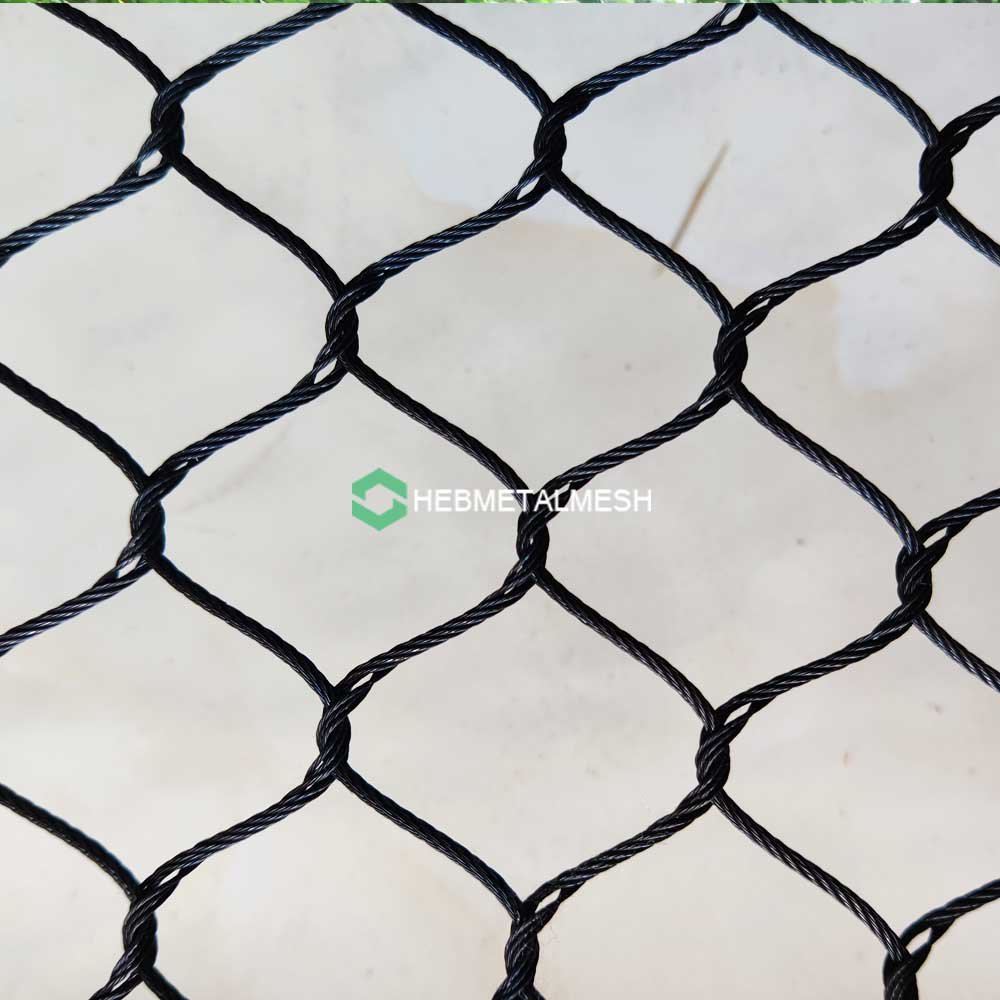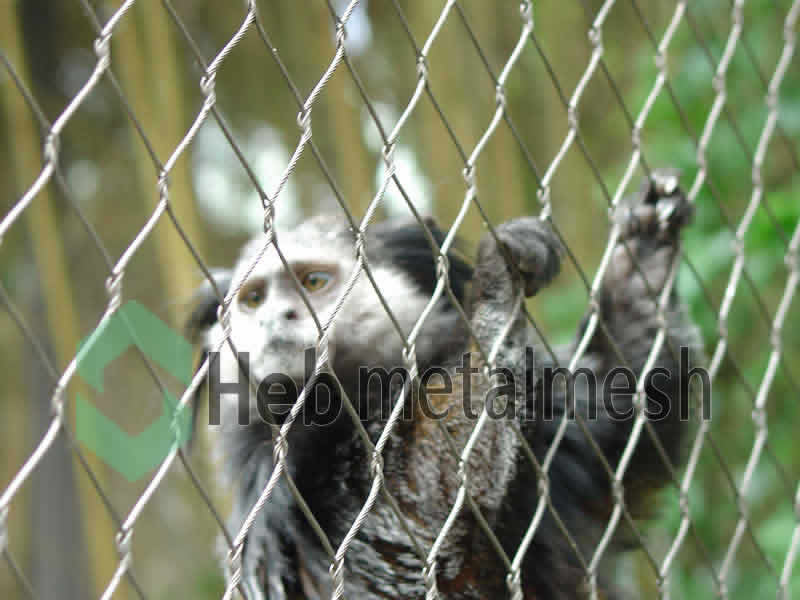Choosing the right fence mesh is more than just a matter of aesthetics; it’s about finding the perfect balance between durability, security, and style for your property. A well-chosen fence not only enhances the visual appeal of your outdoor space but also provides essential protection against intruders and the elements. With countless options available, from galvanized wire to vinyl-coated mesh, the decision can feel overwhelming. Factors such as climate, intended use, and maintenance requirements weigh heavily on your choice. Whether you’re seeking to outline your garden, secure your livestock, or simply add a decorative touch to your yard, understanding the different types of fence mesh can make all the difference. This comprehensive guide will help you navigate the intricate world of fencing materials, ensuring you make an informed decision that meets your needs and stands the test of time. Dive in to explore the key considerations that will lead you to the perfect fence mesh solution!
Understanding Fence Mesh: Types and Materials
Fence mesh comes in a variety of types and materials, each suited to different needs and applications. The most common types include welded wire mesh, chain-link mesh, and woven wire mesh. Welded wire mesh features intersecting wires that are welded together at their junctions, providing a sturdy and rigid structure ideal for security purposes. Chain-link mesh, known for its diamond-shaped pattern, is highly versatile and often used in both residential and commercial settings. Woven wire mesh, on the other hand, consists of wires that are woven together, offering flexibility and strength, making it suitable for agricultural and industrial uses.
The materials used in fence mesh are equally diverse. Galvanized steel is a popular choice due to its corrosion resistance and durability. It involves coating the steel with a layer of zinc, which protects it from rust and extends its lifespan. Vinyl-coated mesh is another option, where a layer of vinyl is applied over galvanized wire, combining the benefits of both materials. This type of mesh is not only durable but also available in various colors, adding an aesthetic appeal. Stainless steel mesh is highly durable and resistant to corrosion, making it ideal for harsh environments and high-security applications. Other materials include aluminum, which is lightweight and resistant to corrosion, and plastic or polymer mesh, which is often used for temporary or decorative fencing.
Understanding the different types and materials of fence mesh is crucial in making an informed decision. Each type has its strengths and weaknesses, and the choice largely depends on the specific requirements of your project. Consider factors such as the level of security needed, the environmental conditions, and the desired aesthetic when selecting the right fence mesh for your property. By doing so, you can ensure that your fence will not only serve its functional purpose but also enhance the overall look and feel of your space.
Key Factors to Consider When Choosing Fence Mesh
When choosing the right fence mesh, several key factors must be taken into account to ensure that it meets your specific needs and preferences. One of the most important considerations is the intended use of the fence. For instance, if you need a fence to secure livestock, a strong and durable mesh like woven wire or welded wire mesh would be ideal. On the other hand, if you are looking for a decorative fence for your garden, a vinyl-coated mesh might be more suitable due to its aesthetic appeal.
Another crucial factor is the climate in which the fence will be installed. Different materials react differently to environmental conditions. For example, galvanized steel and stainless steel are highly resistant to corrosion and are suitable for areas with high humidity or coastal regions. In contrast, untreated steel or iron may rust quickly in such environments, compromising the fence’s integrity. Additionally, extreme temperatures can affect the performance and durability of certain materials, so it is essential to choose a fence mesh that can withstand the local climate.
Maintenance requirements should also be considered when selecting fence mesh. Some materials and types of mesh require more upkeep than others. For example, vinyl-coated mesh is relatively low-maintenance and easy to clean, while untreated metal mesh may need regular painting or coating to prevent rust. Considering how much time and effort you are willing to invest in maintaining your fence can help you choose a mesh that fits your lifestyle and ensures long-term satisfaction with your investment.
Durability: How to Assess the Longevity of Fence Mesh
Durability is a critical factor when choosing fence mesh, as it determines how long the fence will last and how well it can withstand various forces. One of the primary indicators of durability is the material used. Galvanized steel, for instance, is known for its longevity due to its resistance to rust and corrosion. The galvanization process involves coating the steel with a layer of zinc, which acts as a protective barrier against moisture and other elements that can cause deterioration. Stainless steel, while more expensive, offers even greater durability and is ideal for environments with harsh weather conditions or high levels of exposure to corrosive substances.
The construction of the mesh also plays a significant role in its durability. Welded wire mesh, where the wires are welded together at their intersections, provides a robust and rigid structure that can endure significant stress and impact. This type of mesh is less likely to sag or deform over time, making it a reliable option for security fencing. In contrast, woven wire mesh, while flexible and strong, may not offer the same level of rigidity and could require more frequent maintenance to ensure it remains taut and secure.
Additionally, the thickness of the wire used in the mesh can impact its durability. Thicker wires are generally stronger and more resistant to bending and breaking. When selecting fence mesh, consider the gauge or diameter of the wire, as this will give you an indication of its strength and durability. A lower gauge number indicates a thicker wire, which is typically more durable. By assessing these factors, you can choose a fence mesh that will provide long-lasting performance and protection for your property.
Aesthetics: Matching Fence Mesh with Your Property’s Design
Aesthetics play a crucial role in choosing the right fence mesh, as the fence can significantly impact the overall look and feel of your property. One of the first considerations is the color of the mesh. Vinyl-coated mesh is available in various colors, allowing you to choose a shade that complements your property’s design. For example, a green or black vinyl-coated mesh can blend seamlessly with garden landscapes, while white or gray mesh may suit modern or minimalist designs. The color of the mesh can also affect its visibility; darker colors tend to blend into the background, while lighter colors stand out more.
The style and pattern of the mesh are also important aesthetic considerations. Chain-link mesh, with its diamond-shaped pattern, offers a classic and versatile look that can fit various settings. For a more decorative touch, you might consider ornamental mesh designs, which feature intricate patterns and shapes. These can add a unique and stylish element to your property while still providing the necessary security and functionality. Additionally, the height and spacing of the mesh can influence its appearance; taller fences can create a sense of privacy and enclosure, while shorter fences can offer a more open and inviting feel.
It’s essential to consider how the fence mesh will harmonize with other elements of your property, such as the architecture of your home, the landscaping, and any existing structures or features. A well-chosen fence should enhance the overall aesthetic appeal of your space rather than detract from it. By carefully selecting the color, style, and pattern of the mesh, you can create a cohesive and visually pleasing environment that reflects your personal taste and complements your property’s design.
Security Features: Enhancing Protection with the Right Fence Mesh
Security is often a primary concern when choosing fence mesh, especially for properties that require a higher level of protection. The right fence mesh can act as a deterrent to intruders and provide a physical barrier that enhances the security of your property. One of the key features to consider is the strength and rigidity of the mesh. Welded wire mesh, with its welded intersections, offers a high level of strength and is difficult to cut or break. This makes it an excellent choice for security fencing, as it can withstand attempts to breach it.
Another important security feature is the height of the fence. Taller fences are generally more effective at preventing unauthorized access, as they are more challenging to climb. Additionally, the spacing of the mesh can impact its security. Smaller gaps between the wires make it more difficult for intruders to get a foothold or squeeze through. For maximum security, consider a mesh with tight spacing and a height that meets your specific needs.
Additional security features can include barbed wire or razor wire at the top of the fence, which can act as a further deterrent to potential intruders. Some fence mesh products also offer anti-climb coatings or designs that make it more challenging to scale the fence. When selecting fence mesh for security purposes, it’s essential to consider these features and choose a product that provides the level of protection you require. By doing so, you can enhance the security of your property and gain peace of mind.
Cost Analysis: Budgeting for Your Fence Mesh Investment
Cost is a significant factor when choosing fence mesh, as it will impact your overall budget and the long-term value of your investment. The price of fence mesh can vary widely depending on the material, type, and additional features. For example, galvanized steel mesh is generally more affordable than stainless steel, but it may not offer the same level of durability and corrosion resistance. Vinyl-coated mesh tends to be more expensive than plain galvanized mesh due to the added aesthetic and protective benefits of the vinyl coating.
It’s important to consider not only the initial cost of the fence mesh but also the long-term maintenance and replacement costs. While a cheaper option may save you money upfront, it could require more frequent repairs or replacements, ultimately costing you more in the long run. Investing in a higher-quality, more durable mesh may have a higher initial cost, but it can provide better value over time by reducing maintenance expenses and extending the lifespan of your fence.
When budgeting for your fence mesh investment, it’s also essential to factor in the installation costs. Professional installation can ensure that the fence is properly erected and secure, but it will add to the overall expense. Some types of mesh, such as welded wire or chain-link, may be easier to install and require less labor, while more complex or decorative designs could increase the installation cost. By carefully considering these factors and planning your budget accordingly, you can make an informed decision that balances cost with quality and meets your fencing needs.
Maintenance Tips for Different Types of Fence Mesh
Proper maintenance is essential to ensure the longevity and performance of your fence mesh. Different types of mesh require varying levels of upkeep, and understanding these requirements can help you keep your fence in optimal condition. For galvanized steel mesh, regular inspections are crucial to check for any signs of rust or damage. If you notice any rust spots, it’s important to address them promptly by cleaning the affected area and applying a rust-resistant coating. This will help prevent the rust from spreading and compromising the integrity of the fence.
Vinyl-coated mesh is relatively low-maintenance, but it still requires some care to maintain its appearance and functionality. Regular cleaning with mild soap and water can help remove dirt and debris that may accumulate on the surface. Avoid using harsh chemicals or abrasive materials, as these can damage the vinyl coating. Additionally, inspect the mesh for any signs of wear or damage to the coating, and repair or replace any affected sections as needed to maintain the fence’s protective and aesthetic qualities.
For woven wire mesh, regular tension checks are essential to ensure that the mesh remains taut and secure. Over time, the mesh can become loose or sag due to environmental factors or physical impact. If this occurs, you may need to re-tighten the mesh or add additional support to maintain its structure. Regularly inspect the mesh for any signs of wear, rust, or damage, and address any issues promptly to prevent further deterioration. By following these maintenance tips, you can extend the lifespan of your fence mesh and ensure it continues to provide the desired level of security and aesthetic appeal.
Environmental Considerations: Eco-Friendly Fence Mesh Options
In today’s environmentally conscious world, choosing eco-friendly fence mesh options is becoming increasingly important. One way to ensure your fence is environmentally friendly is by selecting materials that have a lower environmental impact. For example, aluminum mesh is a sustainable option as it is lightweight, durable, and highly recyclable. Using recycled materials for your fence can reduce the demand for new raw materials and minimize your carbon footprint.
Another eco-friendly option is using biodegradable or natural materials for temporary or decorative fencing. Bamboo mesh, for instance, is a renewable resource that grows quickly and can be harvested sustainably. It offers a natural and aesthetically pleasing alternative to traditional metal or plastic meshes. Additionally, some manufacturers offer eco-friendly coatings and treatments for metal mesh that reduce the use of harmful chemicals and improve the fence’s environmental impact.
When considering the environmental impact of your fence mesh, it’s also important to think about the long-term sustainability and maintenance requirements. Choosing a durable and low-maintenance material can reduce the need for frequent repairs or replacements, minimizing waste and resource consumption. By selecting eco-friendly fence mesh options and considering the sustainability of your choices, you can create a more environmentally responsible and sustainable outdoor space.
Expert Recommendations: Top Brands and Products in Fence Mesh
Selecting the right fence mesh can be daunting with so many brands and products available. To help you make an informed decision, here are some expert recommendations for top brands and products in the fence mesh industry. One highly regarded brand is Red Brand, known for its high-quality agricultural and residential fencing products. Their woven wire mesh is particularly popular for its durability, strength, and versatility, making it an excellent choice for various applications.
Another reputable brand is Critterfence, which specializes in wildlife and garden fencing. Their products include a range of welded wire and vinyl-coated mesh options designed to provide effective protection while maintaining an aesthetically pleasing appearance. Critterfence is known for its commitment to quality and customer satisfaction, making it a reliable choice for homeowners and property managers.
For those seeking premium security fencing, Betafence is a top choice. Betafence offers a wide range of high-security mesh products, including welded wire and chain-link options with advanced security features such as anti-climb designs and reinforced construction. Their products are used in various high-security environments, including industrial sites, government facilities, and residential properties requiring enhanced protection. By considering these top brands and their products, you can find a fence mesh solution that meets your specific needs and provides long-lasting performance and security.
Conclusion: Making an Informed Choice for Your Fencing Needs
Choosing the right fence mesh is a multifaceted decision that involves considering various factors, from durability and aesthetics to security and environmental impact. By understanding the different types and materials of fence mesh, assessing their strengths and weaknesses, and considering your specific needs and preferences, you can make an informed choice that meets your requirements and stands the test of time. Taking into account the intended use, climate, maintenance, and budget will help you select a fence mesh that provides the desired level of protection, enhances the visual appeal of your property, and aligns with your values.
Proper maintenance is essential to ensure the longevity and performance of your fence mesh. Regular inspections, cleaning, and repairs can help keep your fence in optimal condition and extend its lifespan. Considering eco-friendly options and sustainable practices can also contribute to a more environmentally responsible outdoor space. By following the expert recommendations and tips provided in this guide, you can navigate the intricate world of fence mesh and make a decision that offers long-term value and satisfaction.
In conclusion, choosing the right fence mesh is a vital investment that can significantly impact the security, aesthetics, and functionality of your property. By thoroughly researching your options, considering the key factors, and following best practices for installation and maintenance, you can ensure that your fence mesh meets your needs and provides lasting benefits. Whether you’re securing livestock, enhancing your garden, or protecting your property, the right fence mesh can make all the difference. Take the time to make an informed choice, and enjoy the peace of mind and visual appeal that a well-chosen fence can bring to your outdoor space.


